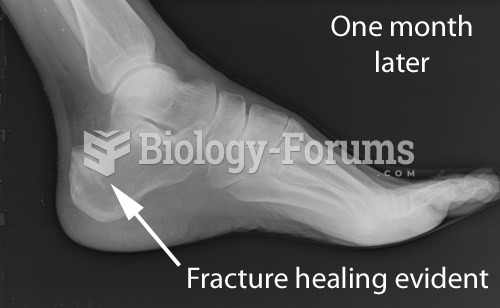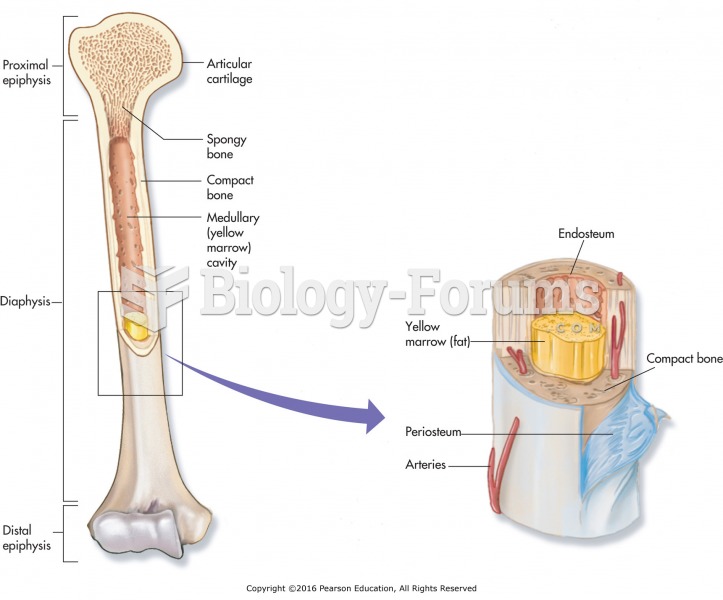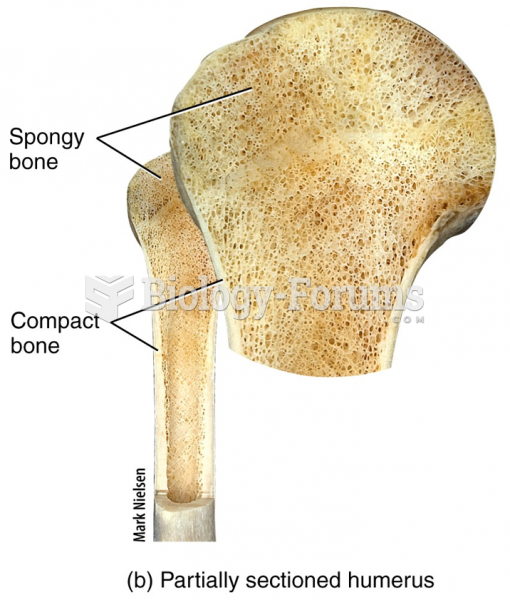|
|
|
About 80% of major fungal systemic infections are due to Candida albicans. Another form, Candida peritonitis, occurs most often in postoperative patients. A rare disease, Candida meningitis, may follow leukemia, kidney transplant, other immunosuppressed factors, or when suffering from Candida septicemia.
The modern decimal position system was the invention of the Hindus (around 800 AD), involving the placing of numerals to indicate their value (units, tens, hundreds, and so on).
More than 2,500 barbiturates have been synthesized. At the height of their popularity, about 50 were marketed for human use.
Medication errors are more common among seriously ill patients than with those with minor conditions.
There are more bacteria in your mouth than there are people in the world.







